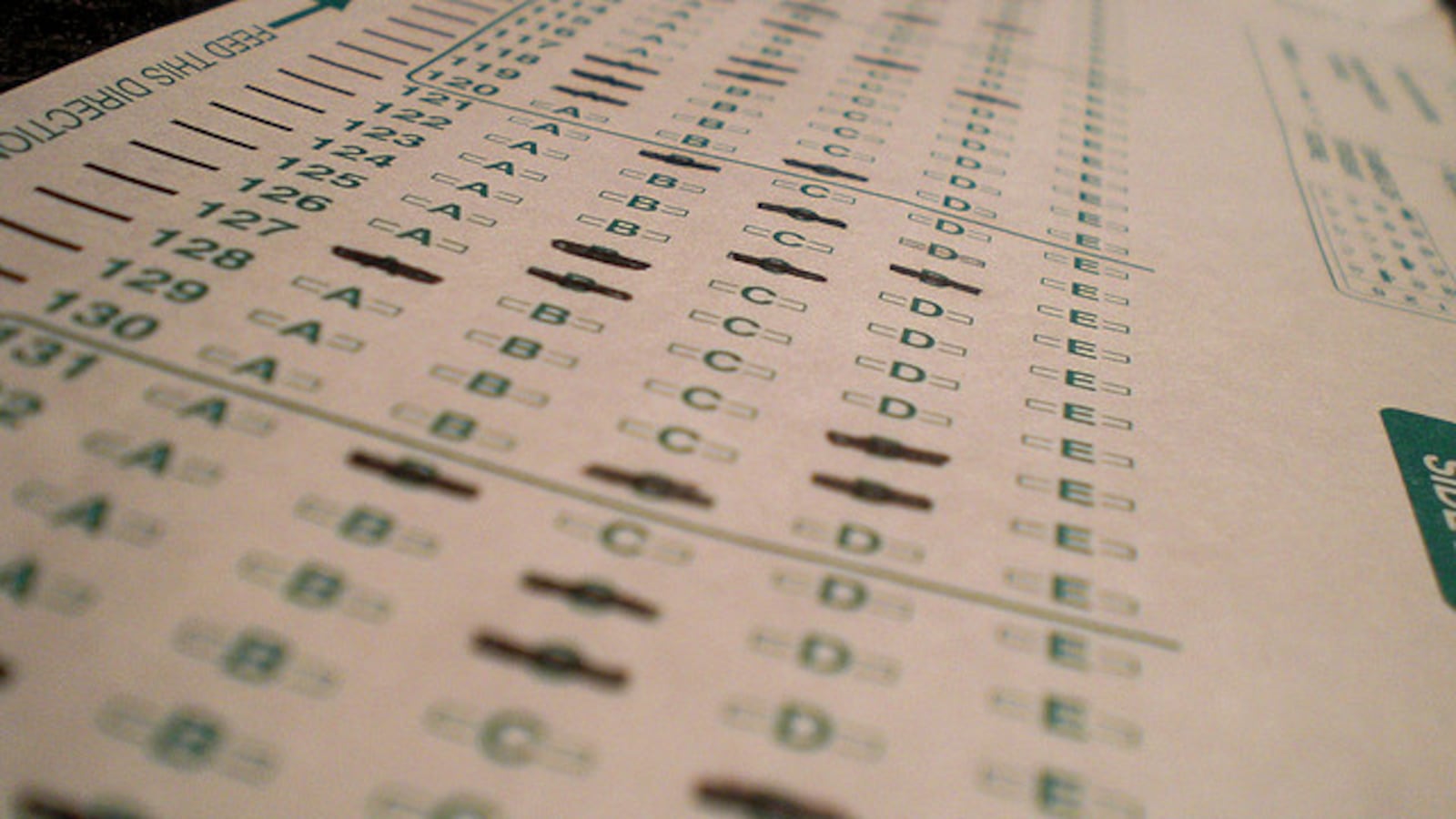The principal of Teachers College Community School admitted to filling in questions left blank by third graders on this year’s English exams, according to a report released by the Department of Education on Monday.
An unnamed whistleblower reported the principal, Jeanene Worrell-Breeden, after she admitted to making the changes. That day, April 17, the veteran educator jumped in front of a B train at a station in Harlem not far from the school, and later died in what has been ruled a suicide.
The circumstances surrounding Worrell-Breeden’s death had not been made public until Sunday, when they were reported by the New York Post.
The one-page report, which was completed June 9, lacks the context and details normally provided by the department’s Office of Special Investigations. It notes that the unnamed person who reported Worrell-Breeden confirmed the original allegations when he or she was interviewed in mid-May. City officials said they invalidated the English scores of 47 third graders who took the tests, but did not seek further action because of Worrell-Breeden’s death.
“Principal Worrell Breeden was the subject of allegations of testing improprieties,” spokeswoman Devora Kaye said. “An investigation substantiated these allegations, and we closed the investigation following her tragic passing.”
City officials urged caution about tying stress felt by the city’s teacher and principal workforce or any other school-policy factors to the death of Worrell-Breeden, who the Post reported had recently separated from her husband. The principal had also been found guilty of impropriety at the school she helmed before joining Teachers College Community School.
But the report nevertheless raises fresh questions about the integrity of New York’s state tests, which contribute to teacher evaluations, school evaluations, and student promotion decisions.
Investigations into test fraud in New York City between 2006 and 2012 found that teachers had occasionally erased answers, coached students to change incorrect responses, or simply given out the answers while the tests were being administered. The state sought to crack down on the illicit activity after a 2012 audit found deficiencies in test security policies and in the wake of cheating scandals in large cities around the country.
But the report highlights a new potential weakness in the state’s test security efforts in the era of tougher, Common Core-aligned exams. As students, pressed for time, leave questions unanswered, multiple-choice answer sheets could be completed by someone else without tell-tale erasure marks like those used in 2011 to investigate widespread cheating in Atlanta’s schools.
As it happens, the scandal in Atlanta culminated with prison sentences for nine educators on the same day of Worrell-Breeden’s forgery.
“Ensuring the integrity of assessments for all New York City students is critical to measuring students’ progress and holding schools accountable,” Kaye said.
City Councilman Mark Levine, whose district includes the elementary school, cautioned against making connections between Worrell-Breeden’s death and education policies. Levine praised the school’s trajectory during its first four years under Worrell-Breeden, and said he didn’t believe the impropriety was a harbinger of broader troubles.
“People need to understand this was not a school in distress,” Levine added. “There was no reason to think the test scores would be problematic. This was a school that was thriving in every way.”


